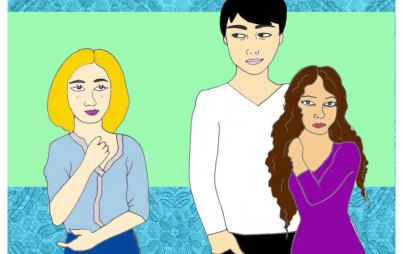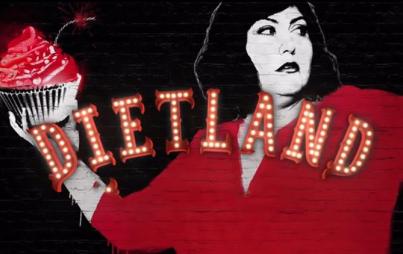
Despite voracious paparazzi, twisted T.V. shows like TMZ and a pantheon of cruel publications that dedicate their ink-space to humiliating the rich and famous — somehow it's still hard to feel sorry for celebrities.
It can seem like cosmic cruelty that 1% of the human population was plucked from the rest of us peons and launched into a glittering glamorous stratosphere while the rest of us wrestle with electricity bills and Chinese leftovers. A small, ordinary life can seem a little depressing. A little arbitrary. And while many of us have no interest in donning a satin gown and grinning down a red carpet, feeling perpetually special and never having to worry about that 'lil ol thing called money ever again can seem pretty f*cking appealing.
So screw em right? They chose this life and all the fish-bowl madness that accompanies it right? You can't have your cake and eat it too. But perhaps we've gone too far. Alec Baldwin certainly thinks so: in the wake of being accused of homophobia, he's been axed from contracts, fired from MSNBC, and generally given the cold shoulder from society; he's been black-balled by a industry he's poured his guts into because of one alleged remark he claims never. even. happened.
Now I loathe and despise the media in a way I did not think possible. I used to engage with the media knowing that some of it would be adversarial, but now it’s superfluous at best and toxic at its worst...I’m aware that it’s ironic that I’m making this case in the media—but this is the last time I’m going to talk about my personal life in an American publication ever again...I think America’s more fucked up now than it’s ever been.
Society craves celebrity dirt and so the media obliges. The media floods every medium with celeb carnage and we lap up the blood. Like neo-vampires we crave the kill again and again and the media supplies fresh meat again and again. It's a vicious cycle of voyeurism, self-loathing and cannibalism.
We're eating our own kind because deep down we think they deserve it. We can only appreciate the "fall from grace" — the juicy, nervous break-down, cheating, anorexic stuff — if we've first traced their path to glory. It's like any love story. Our hearts can't break all over the place for a celebrity's romanic failings ... if we never saw how glowingly happy they were to begin with.
If there were T.V. shows and publications dedicated to mud-splattering the emotional squalor of normal people (I guess the closest manifestation is "Sixteen and Pregnant" among some other choice reality shows) we'd be downright sociopathic. Normal people addicted to drugs, starving themselves, women who put on post-baby weight, alcoholics, cheaters, widows, cancer survivors (etc. ad nauseam) deserve our sympathy and support. Imagine snatching up a tabloid filled with over-tired mothers looking fat in their sweatpants or a lurid photography round-up of a young girl trying to get home from the club makeup askew and slurring...it would feel a little wrong, right? Like maybe what was happening was their own business? And just like you, they might want to be left alone especially if they're dead drunk trying to get home and/or feeling fat and trying to raise a baby?
But this logic doesn't apply to celebrities. Once you cross that ineffable threshold into notoriety, you've signed a pact with the publicity devil. Any of your business — the more humiliating the better — becomes collectively ours. Ours for the poking, the snark-ing, the point-and-laughing, the criticizing, the lambasting, the judging, the crucifying.
But is this desire for dirt a modern movement or something that's always throbbed in our chests. Has the dawn of new technologies simply poured gasoline on ancient embers?
Psychologist John Lucas believes that while celebrity worship is largely "harmless" (at least to those worshipping) it could be emblematic of a society suffering from profound isolation and a sense of emptiness:
What we know of them [celebrities] through People magazine and other media sources fills a gaping and painful void in our lives. The dwindling influence of religion adds to that sense of yearning in people, making the stars' exploits and eccentricities, their loves and losses, more than a form of entertainment. Religion is faltering, and in the process people are grappling with infantile wishes, with magical thinking.
Other theories include the idea that's just biology and politics — other primates always keep an eye on the more dominant members of their group — and if you understand what high-status individuals are up to/are all about, you might be able to achieve that status as well or better navigate your social scene.
Baldwin describes our current society as one enormous "digital arena, like some Roman Colosseum, with our thumbs up or thumbs down," waiting to release the lions on the latest transgressor.
The question is, how do we temper what seems to be part of our inherent psyche and quit sacrificing all these celebrity lambs on the mega-alter of information? How do we satiate our desire for social hierarchy without destroying modern media's bottom line or ruining people's lives?






